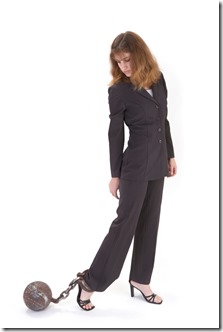The One Small Adjustment That Changed Everything
I recently media trained a well-regarded executive.
Off camera, this client was funny, warm, and engaging. But her first on-camera interview was terrible. While answering my questions, she appeared stiff and restrained, bordering on unlikeable. As I sat listening to her answers, I thought, “How in the world am I going to help her improve?”
After we stopped recording, I mentioned to her that although she had all of these wonderful traits in person, I wasn’t seeing them come across during the interview. I asked what was holding her back.
She told me that she had been told by a previous boss that she has too much personality—and, over time, she’s learned to dial back her performance in order to be taken more seriously. (In my experience, this has been a recurring theme with many more women than men.)
I asked her to do another interview with me—but this time, to be the person she truly is, the one that hasn’t been criticized or critiqued in the past. I wanted the unrestrained version of her, the one that goes out to dinner with her closest friends.
Guess what? Freed of her self-defeating internal monologue, she delivered a great on-camera interview in the second round. Even better, she actually enjoyed the experience after I gave her permission to be herself.
Like many of our trainees, advice she had received from someone earlier in her life—in this case, a former boss—had killed some of her spark.
If you’ve ever been given advice from a supervisor, friend, partner, media or presentation coach, or anyone else that isn’t sitting right with you, question it. Don’t dismiss it entirely; there’s always a chance they could be right. But allow for the possibility that you know something about yourself that the other person simply doesn’t know.
And remember: There’s no one model for what a spokesperson should look like, other than themselves at their best. Spokespersons can succeed as communicators whether they’re quiet and shy or personable and high energy. So to this client’s former boss, I say this: personable people can be taken seriously.
Like the blog? Read the book! The Media Training Bible: 101 Things You Absolutely, Positively Need to Know Before Your Next Interview is available in paperback, for Kindle, and iPad.




This is so interesting. Someone was told her she was too “her.” I wonder what was that boss’s agenda, because it was not helping her be the best manager or communicator she could be. Too bad she took it to heart, and good on you for turning it around.
Back in the day, I was working as a promotional copywriter and my publishing house went through a management change. At about the same time, I was going through a divorce, so I decided to resign and relocate. In my exit interview — I am 25 at this time — my new “boss” said: “Whatever gave you the idea you could write?” It was kind of random. I mean, it was my last day and everything.
I was so stunned and hurt, I said the first thing that came into my head. I DONT think I’m a good writer. It’s just that you all have been paying me to write for two years.” Long silence.
He really didn’t have anything to say after that. People are going to have their opinions. Anyone who has truly constructive advice will generally be specific, compassionate, and help you get to where you need to be.
Otherwise, they’ve got some other kind of agenda that is not in your best interests.
Good for you, Brad… and how great that she could get over that comment about having “too much personality.”
How many of us have been told something that holds us back? The worst is if if we think the comment might be true, feel embarrassed or fearful that it is, and never check to find out.
The person who made the comment may well have been wrong. We might have misunderstood, too.
And then years can go by before we figure it out (if ever).
How great that you helped your client to overcome advice that wasn’t helping her. Thanks for writing about it, too.